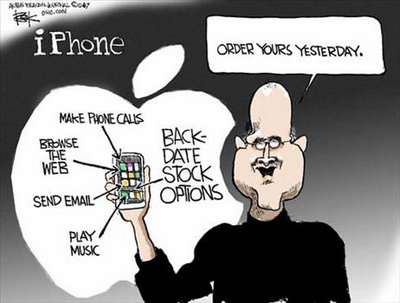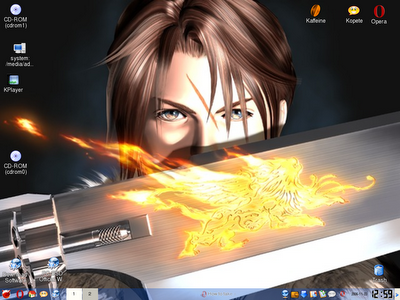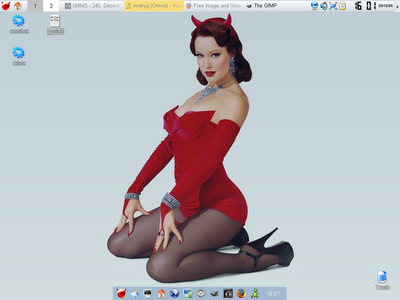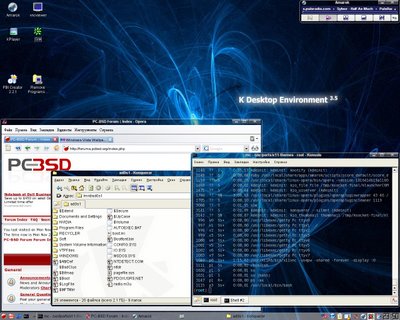
The cartoon refers to accusations of insider trading leveled against Apple's CEO Steve Jobs. Apple can continue on without Steve if need be. But will Apple continue on supporting it's computer operating system, OS X?
The cartoon is also refering to Apple's new iPhone. Apple has been coming out with a series of products other than it's computer line. Recently the company changed it's name from "Apple Computer" to just "Apple", to reflect it's product diversification. At CoolTechZone.com, Gundeep Hora speculates about the company's commitment to OS X:
Apple Ready to Kill OS X?
[...] As Apple delves into the world of consumer electronics with more products and lucrative markets to go after, owning some 3 percent of the computing population won’t add much to its bottom line. Now, if Apple were to improve on that, then you can be sure Apple will continue to develop it.
Apple used to be persistent about its core product, but its slowly drifting away and changing directions, rightfully so. As such, it may not be surprising for Apple to leave behind OS X sometime in the future. [...]
I don't see them dropping it anytime soon, but if their other ventures become more lucrative, you have to wonder how committed they will remain to their small market share in the PC market.
OS X itself has an interesting history. The core of the operating system is based on FreeBSD, which is an open source Unix variant. I've read estimates that up to 80% of OS X is BSD code. Unlike Linux, which requires changes made to the code to be released back to the community, the open source license of FreeBSD allows anyone to make changes and NOT share them.
That is exactly what Apple has done. So in many ways, OS X is a Unix variant, containing a large portion of proprietary code (It's worth noting that they did release on open source version of the OS, minus the proprietary code, called Darwin).
The interesting thing is, BSD was made to work on a PC. Apple re-engineered it to work on their hardware. I believe that this means that if Apple so wished, they could reverse engineer OS X to work on PC hardware. If Apple ever decided to make a PC version of their software (that could run on ANY PC, not just their own MacIntel hardware), they could give Microsoft some real competition. But will they ever consider doing that?
In another article, Rob Enderle at Datamation has a look at the current situation with Dell, Microsoft, Linux and Apple:
The Emerging Dell-Linux-Apple War
There is a convergence of several factors which are leaving an opening to challenge Microsoft in the desktop OS market. But will either Linux or Apple be able to rise to the challenge quickly enough? And how soon will Microsoft recover from several major blunders that have allowed this situation to occur? Enderle looks at this and more.
Related Link: Free BSD for the Desktop

Like Linux, BSD developers have been pushing to make BSD an attractive and easy to install and use desktop environment.
Curious about BSD? This is my favorite version of BSD for the desktop, which uses the KDE desktop GUI:
PC-BSD
In my opinion, PC-BSD is one of the most complete BSD desktops, and it's relatively easy to install. Here are a few more screenshots, showing different ways it can be configured:



Looks like we will have more desktop choices in our future. Good!
No comments:
Post a Comment
Comments are moderated.